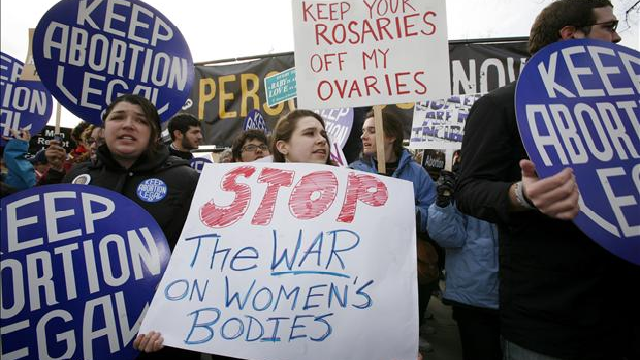Poll: Measure 1 Yes Vote Supported Over No Vote By 17 Points

The abortion issue has been a strange one during this election year. The opponents of Measure 1, funded by an influx of cash from pro-abortion groups like Planned Parenthood, haven’t really spent a lot of time talking about actual abortion. Instead, they’ve focused on supposed side-effects of Measure 1 (apparently of their own invention) like the law criminalizing certain end-of-life issues or outlawing invitro fertilization procedures.
In the hotly-contested District 35 race in Bismarck, where Democrats have invested more money than they have in some of their statewide races in defeating outspoken pro-life candidate Margaret Sitte, abortion also hasn’t been an issue. Sitte’s opponent Erin Oban hasn’t really brought the issue up at all.
Maybe this polling, conducted by the University of North Dakota on behalf of the Fargo Forum, tells us why.
You can read the whole polling memo below, but what it tells us is that 50 percent of respondents in a sample of over 500 voters likely to vote will vote “yes” on Measure 1. Just 33 percent said they’d vote no.
This, from the Forum’s report on their poll, surprised me the most:
When grouped by age, respondents 18 to 30 were most likely to vote in favor of the measure at 62 percent, compared to 52 percent of those 31 to 45, 43 percent of those 46 to 65 and 51 percent of those 66 or older. More than a quarter, 28 percent, of 46- to 65-year-olds were undecided, the most of any age range.
I’ve written about the polling trends on abortion before. At a time when Americans are growing more accepting of things like gay marriage and legalized drugs, feelings aren’t really changing that much on abortion. I would say I’m surprised that younger North Dakotans are the most stalwart opponents of abortion, but I’m really not.
Younger North Dakotans are growing up at a time when contraception is both extremely accessible and widely condoned. While other generations may remember a time when helpless women were forced to have child after child for want of “the pill” or even just a condom, that’s a distant memory today.
I think, as contraception becomes easier and more effective, it’s going to be harder to convince people why aborting unwanted babies should be legal.
As for the larger political issue, the ballot measures are going to have undue influence on the state’s elections this year. In the absence of a really strong statewide race – there are a couple close ones, but nothing that really seems to be exciting the interest of voters – who these measures pull out to vote is going to impact the turnout of several races around the state. Measure 1, perhaps, more than any of the other ballot measures because the sides of the abortion issue are more neatly delineated along partisan lines than any of the other measures.
I have to think that Republicans are relieved to see such a strong polling number for Measure 1. Pro-life voters are also, for the most part, probably Republican voters.




